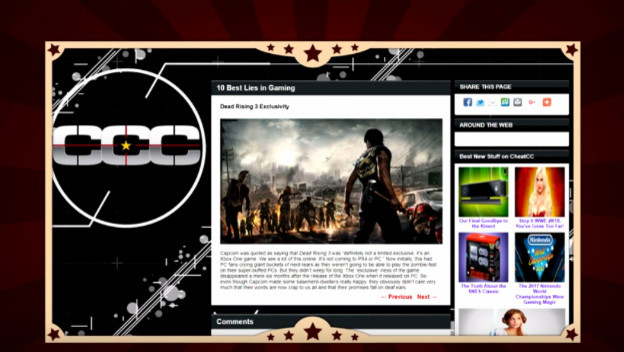Here are some recent headlines: “Activision Has Patent for Pushing Microtransactions with Matchmaking,” and “EA Closes Visceral, Are Single-Player Games Dead?” I’m paraphrasing and smooshing some stuff together, but you’ve probably heard some variant of these stories. In all cases and many more, these controversial events are almost universally updated after a time with a statement from some company’s PR department. And I’ve noticed we have a big problem with taking these statements at face value.
In the first case, a patent got loose recently that came out at the perfect time; tensions are especially high when it comes to microtransactions. To put it as short as possible without missing key, gruesome details, Activision patented some algorithmic tech that would make some assumptions about the player, then match them up in ways that would make paying for extra content more attractive. This would be based on specific items the game thinks you may like, or perhaps matching the player up with more skilled players with better equipment, deliberately to make them lose and consider making purchases. After a big stink, Activision released a statement saying the patent was exploratory and not currently used in any games.
In the second case, EA recently closed Visceral, the company that was working on Amy Hennig’s narrative-driven Star Wars game. In a big, flowery statement from the massive publisher, EA seemed to imply that the move was due to a change in focus for the project. EA cited shifts in gaming and marketplace trends, and the big takeaway for most people was that EA wants this project, code-named “ragtag,” to become a Destiny -like service game, not unlike BioWare’s upcoming Anthem . From this spawned waves of articles about the health of the single-player game in the AAA space. The exceptions being console-selling first-party games like Uncharted 4 or Super Mario Odyssey .
Let’s start by pointing to some tweets from Jason Schreier, a Kotaku journalist who is notable for his level of trust and access in the industry, therefore scoop ability. He said, “I feel like I should clarify that despite today’s Hot Takes, Visceral’s game was not canned b/c it was single-player (from what I’ve heard),” and to further clarify, “Because investors don’t like hearing ‘the project was a mess’.” Fronting like Visceral was closing because of the project changing direction is likely PR deflection from the truth, which is likely that the game was not turning out well for whatever reason. EA likely feared a Mass Effect: Andromeda -style situation.
Meanwhile, with the Activision story, I think it’s safe to say it’s established video games law that we shouldn’t trust a word any publisher has to say about microtransactions right now. It’s a hot topic, and PR will likely try anything it can do to spin loot boxes and similar, predatory systems designed explicitly to siphon cash away from players into something good. Jim Sterling, notable pro-consumer YouTube gaming pundit, made a video recently called The Business of Lies. In it, he reminds us all of the biggest “scandals” in recent video games memory, all of which came after some bogus PR statement or another. Activision could very well be baking that patent into some upcoming game for all we know and are now trying to figure out how to sell it better now that we found out about it.

Sterling’s video goes over a ton of issues in games like Dead Rising 4 (which features a cameo from Cheat Code Central , an obligatory bragging opportunity I should add), Beyond Good and Evil, Until Dawn: Rush of Blood, and finally the big one, Aliens: Colonial Marines . Video game history is full of straight-up misinformation from PR folks, who admittedly are trying very hard to do their job at the behest of publisher suits who often don’t care about video games, that is subsequently proven false the moment a game in questions comes out.
The takeaway here is this: we need to be more careful. We need to finally stop treating video game companies like they are our friends or that they care about anything other than controlling the flow of information and taking as much money as they can from us. They often manage to trick people into thinking spending tons of money is a good and noble thing, when it usually means we’re footing the bill for bad management decisions. Torches and pitchforks are probably not necessary, but discretion and skepticism are. Don’t scream at or harass people, but do take any public-facing statement with a grain of salt. Cite it, read it, take it into consideration, sure, but don’t take it at 100% face value. You’ll only end up more frustrated in the end when it turns out to be demonstrably untrue.
Image Credit: The Jimquisition
